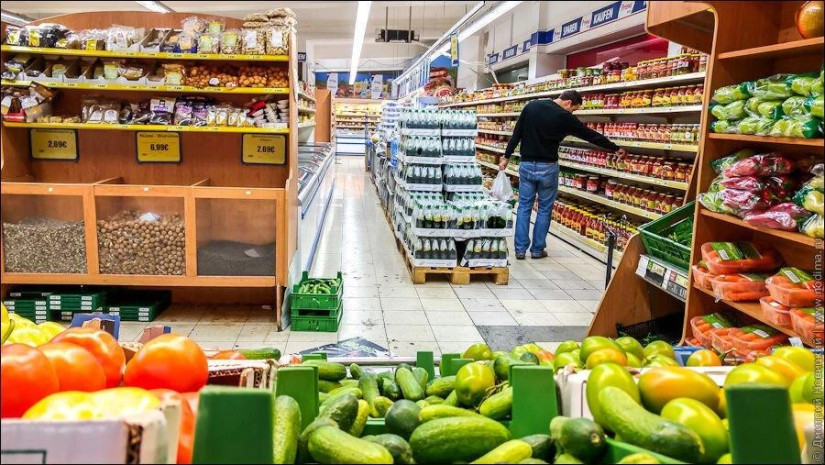Germany's annual inflation rate came in at 7.4% in March, easing from 8.7% in both the first two months of the year, official figures showed on Thursday.
Despite the decrease in the rate, inflation is still high, Ruth Brand, the head of the Federal Statistical Office (Destatis) said in a press release.
"Households felt especially the impact of yet another rise in food prices in March," Brand added.
In March, food prices soared by 22.3% on a yearly basis, even more than in January and February, and stand at three times the overall inflation rate.
Among food, the price of egg rose by 34.6%, vegetable by 27.3%, bread and cereals by 23.8%, and fish products and seafood by 22.2%.
Destatis said very high price rises were observed for some foodstuffs, and consumers had to pay 70.9% more for sugar in March versus the same month last year.
The price increase for energy products was at 3.5% in March, down from 19.1% in February and 23.1% in January.
"Due to the previous year's strong rise in energy prices, the figure for March 2023 was however subject to a base effect," it added.
The inflation rate excluding energy and food was also at 5.8% in Germany last month.
The monthly inflation rate was at 0.8% in March in the country.
















